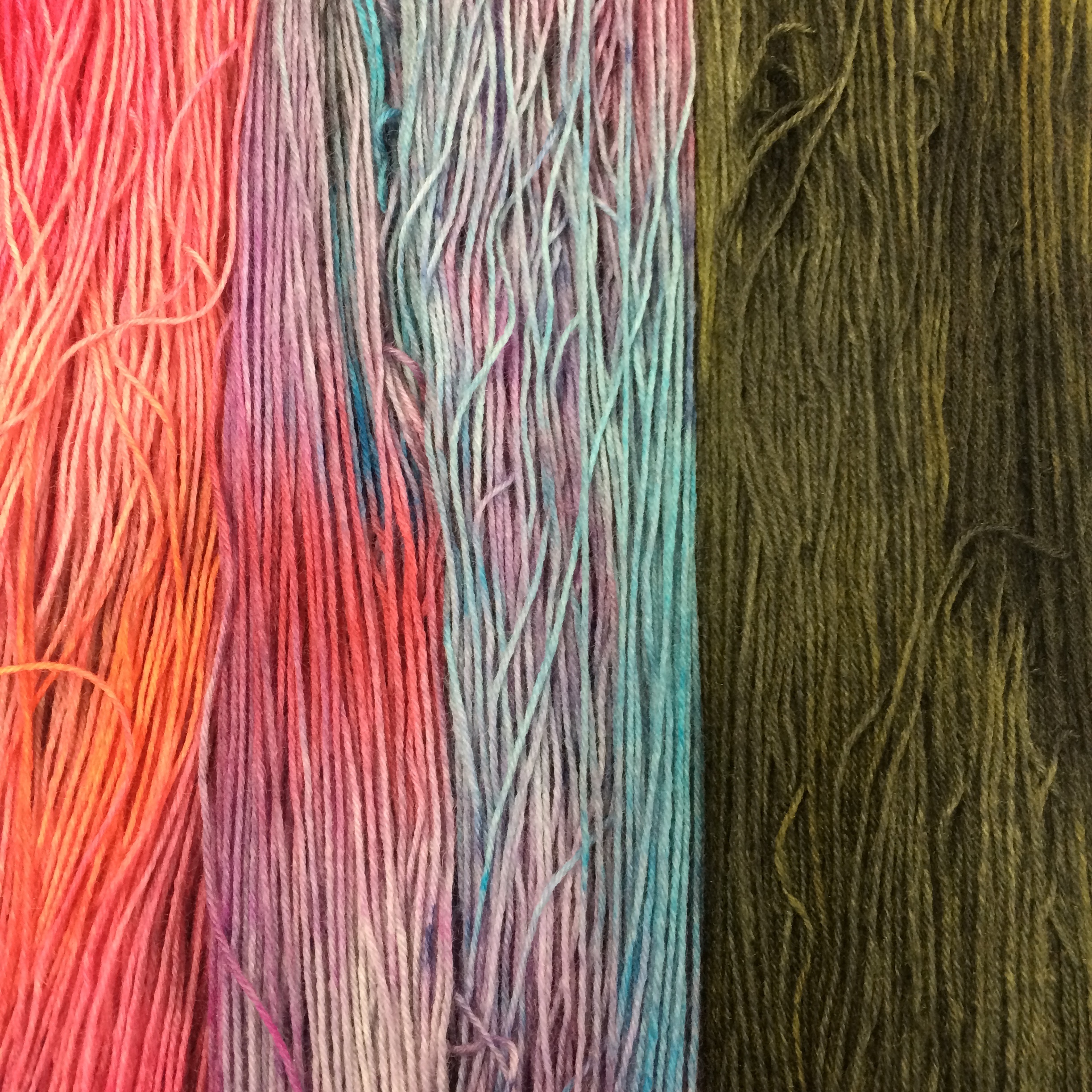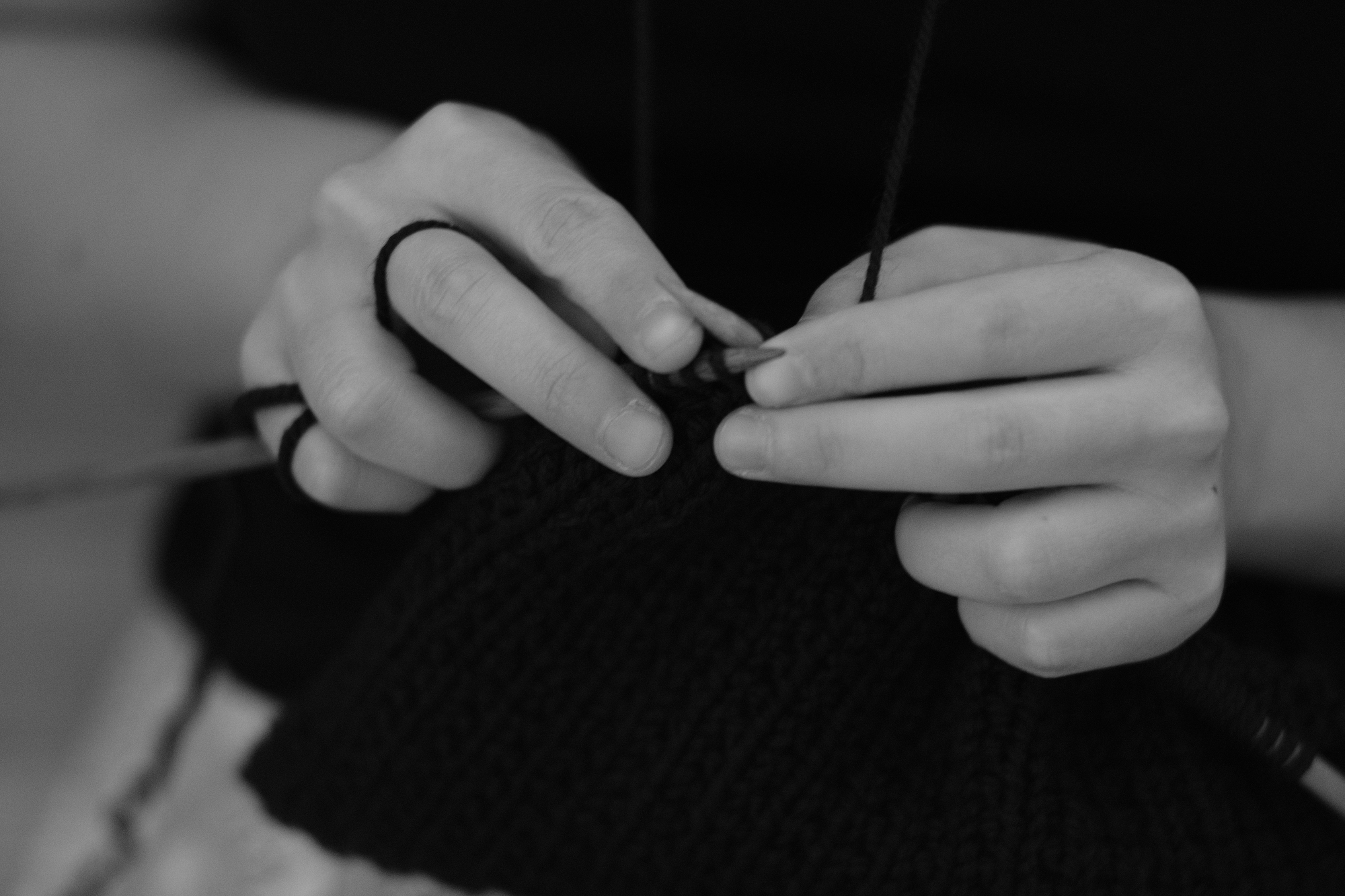Confined to our homes and amidst feelings of uncertainty, some of us choose to DIY rather than buy. Knitting, for example, brings us closer to our material world. Making holds the potential for a more sustainable relationship with the things we buy and wear, writes Inês Peixoto.
Peixoto’s blog post is part of the Environmental Research in the time of COVID-19 blog series, where environmental researchers talk about the effects of the pandemic.
Isolated from physical encounters and uncertain about economies, people turn to making rather than buying. Social value replaces exchange value, helping us to find, in the words of Richard Sennett, a “more humane material life” in which “people can learn about themselves through the things they make”. As making replaces buying, our economic action amidst the global pandemic is more about developing skills, creating authenticity, forging intimate connections with known and strange ones, and living slow. Making becomes an ethical choice for many.


Virtual interactions nurture meaningful social spaces in a time of physical isolation

In my research on responsible wool and knitting communities, I have been studying the emergence of creative knitting. Creative knitting is a meaningful practice of clothes making rooted in a deep sense of community and appreciation for small, local production which values human skill, social interaction, shared values, and material appreciation.
Contemporary knitting communities rely on independent businesses – self-publishing designers, small-scale farmers, ethical and creative yarn makers working from home studios and local yarn shops. Community events, such as festivals, workshops, and marketplaces, have all been canceled, the postage of materials is delayed and visits to shops are postponed. Small businesses run the risk of being disrupted by the global pandemic.
Knitters, though, sustain meaningful connections among these small businesses by nurturing online exchange of craft knowledge, sharing appreciation for others’ creative work, and gathering in virtual knit nights. Small businesses share their stories and production or design processes, find ways to make designs affordable so that many can still knit, and call for supporting small businesses in creative ways.
Knitting can nourish deep material connections
Making holds the potential for a more sustainable relationship with the things we buy and wear. It enables mindful focus, produces creative energy, and invites to slow living and to inquire about the origin and sensory qualities of the materials we choose to bring into our daily lives.
On my needles now is a unique sweater project. It combines my novice skills with the imperfect softness of an ecological yarn produced – “farm to cable” – from a native breed of Spanish merino sheep by young local entrepreneurs, purchased in a local yarn shop in Helsinki. Another, yet unknown, project awaits me: something from a beautiful skein of wool made by local businesses in the Finnish Lakeland from Finnish cross-bred sheep. The wooly fabric coming out of the needles witnesses the passing of days and holds bodily and landscape memories. Making invites to engage with the material world that is most often invisible to our eyes.

Expanding awareness of global and local connections
Nowadays mostly confined to living spaces, we find that earlier – out and about in the world – we might have been more disconnected from the material world and our relation to broader surroundings. Perhaps awareness of how our habits and rhythms of consumption are interlinked with elusive global value chains has also expanded. Making holds us to the concrete, to creative choices among what is around us, to engage more of our whole selves and to discover new ways of producing economy.

Inês Peixoto works as a postdoc researcher at Aalto University School of Business. Her research interests lie at the intersection of sustainability, markets, and organization theory. Her research titled “What counts as sustainable in wool fibre markets? An inquiry into a creative knitting field and a standard-setting field” is funded by Nessling Foundation.
